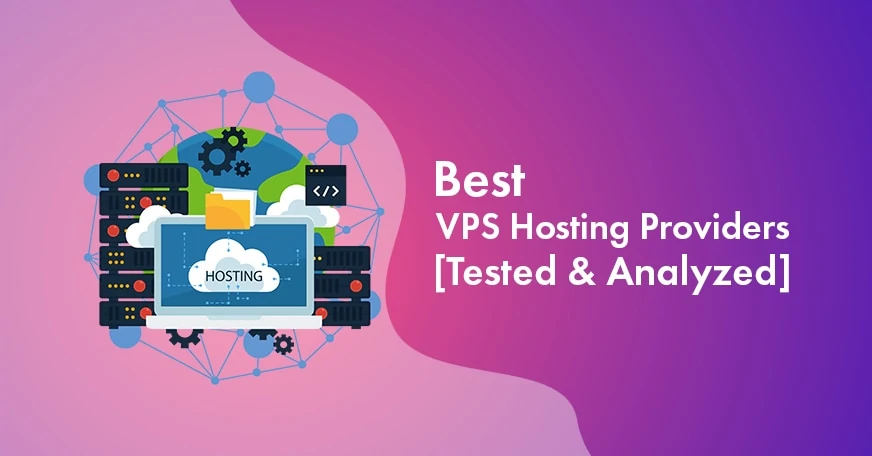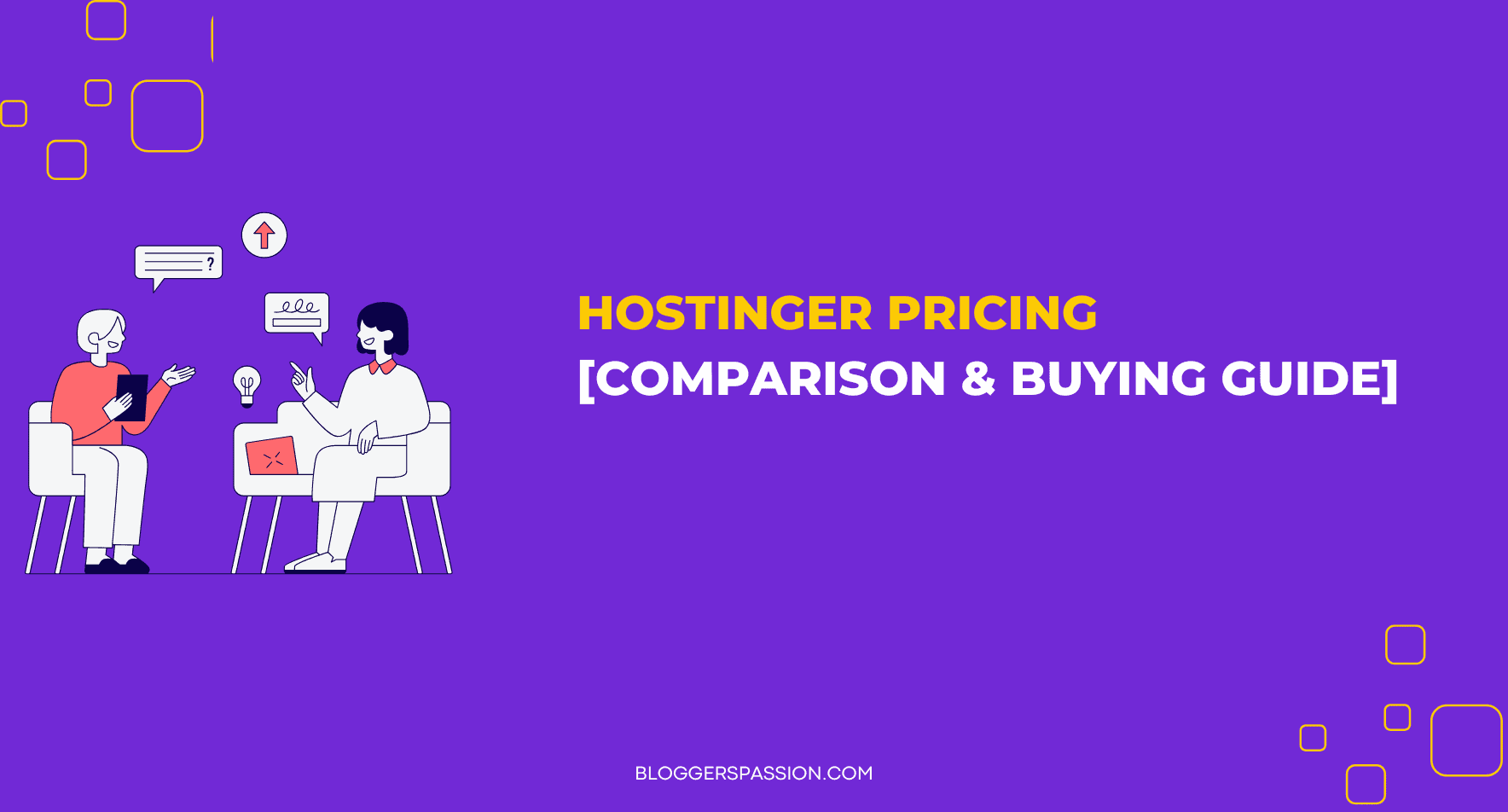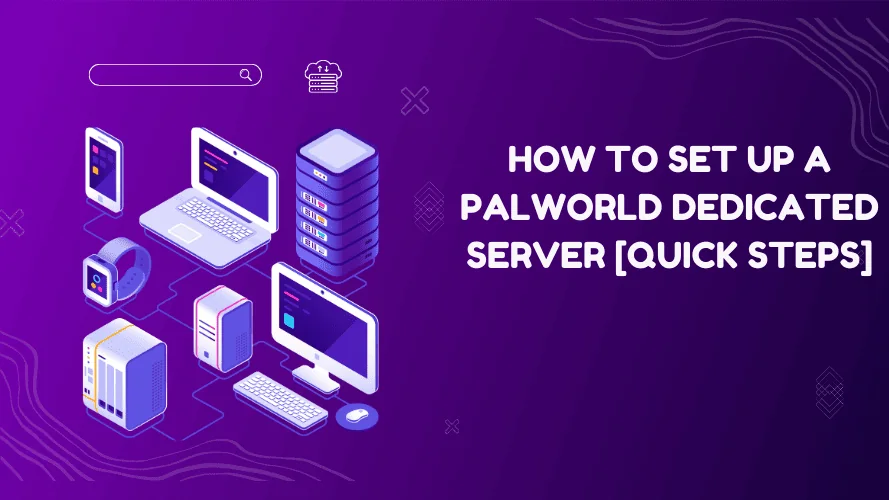Is your site getting huge traffic? Are you looking to upgrade your hosting to a robust kind of server?
Two popular choices for individuals or businesses with larger, resource-hungry sites are VPS (virtual private server) and dedicated server hosting.
How do you know which one’s actually right for you?
Both provide dedicated resources and a higher level of performance than other types of hosting. However, their working, features, and pricing differ.
In this post, we’ll compare VPS vs. dedicated server hosting to help you understand their key differences, advantages, and potential drawbacks.
By the end, you’ll be sure about both options and you’ll be able to make a decision based on your site goals and overall budget.

Table of Contents
Key Differences Between VPS and Dedicated Server Hosting
Let’s start with the key differences between virtual private server (VPS) hosting and dedicated server hosting:
| Aspect | VPS Hosting | Dedicated Server Hosting |
| Resource Allocation | You get a slice of a physical server, with dedicated portions of CPU, RAM, and storage. It’s private, but still shares the underlying hardware. | You get the whole server to yourself — all resources are entirely yours to use as you wish. |
| Performance | Delivers strong, reliable performance for most websites and apps. However, performance can occasionally be influenced by other VPS users. | Offers top-tier performance with no resource sharing. Perfect for demanding workloads and high-traffic sites. |
| Cost | More affordable than a dedicated server. Great for businesses that need more than shared hosting but want to keep costs reasonable. | Higher upfront and ongoing costs, but you’re paying for premium power, control, and reliability. |
| Scalability | Easy to scale up as your needs grow, often just a few clicks to add more CPU, RAM, or storage. | Scaling typically requires physical upgrades or a new server, which takes more time and planning. |
| Flexibility & Control | Offers a reasonable degree of control over your hosting environment, often with root access. | Full control over every aspect of the server, from hardware to software configurations. |
| Ease of Management | Requires some technical knowledge to manage. | Usually needs more technical skill, especially if unmanaged. Managed plans are available but tend to cost more. |
| Who It’s Best For | Ideal for small-to-medium businesses, developers, and growing websites that need flexibility without a big price tag. | Best for large businesses, high-traffic websites, or projects with strict security, performance, or compliance needs. |
What Is VPS?

With virtual private server (VPS) hosting, you get your own virtual space on a physical server.
A VPS combines features of both shared and dedicated hosting. But the difference is that VPSs use virtualization technology that divides one physical server into several independent virtual servers.
Each VPS functions like its own standalone server with dedicated resources (such as CPU, RAM, storage, and an operating system).
You can freely install any software, make custom configurations, or reboot your VPS without affecting other users on the same physical server.
Basically, you get the same root access as if you had a dedicated server, but at a much lower price.
VPS hosting is a popular choice for:
- Small to medium-sized sites looking for nice and reliable performance
- Developers who need a flexible environment for application development and testing
- Growing websites or online stores that have outgrown shared hosting but still not looking for dedicated servers
One of the biggest advantages of VPS hosting is scalability.
As your site or web application grows, you can easily upgrade your resources without migrating to a new hosting environment. This makes VPSs a smart, future-ready option for many users.
You can even choose between the two main types of VPS hosting:
- Managed VPS: Good for beginners in which the hosting provider handles server maintenance, updates, security, and other technical tasks.
- Unmanaged VPS: Best if you have the technical expertise to configure and manage the server on your own.
Benefits of VPS
- Cost-effective performance: VPS offers many of the advantages of a dedicated server, such as private resources and customization, at a fraction of the cost.
- Scalable resources: As your website’s needs grow, you can easily scale your VPS plan to get more memory and bandwidth.
- Better security: Each VPS is isolated from others on the same physical server. This keeps your data and files separate and reduces the risk of being affected by malware or heavy traffic on other users’ sites.
- Greater control: It grants you root access to your server. You can install custom software, configure settings, and customize the server environment to your needs.
- Reliable performance: Because your allocated resources are reserved just for you, your website will load faster and perform more reliably than it would on shared hosting.
Disadvantages of VPS
- Requires technical knowledge: Obviously, If you choose an unmanaged VPS, you’ll need to handle server setup, security, updates, and troubleshooting yourself. This can be challenging if you don’t have any prior technical experience.
- Limited physical resources: Yes, you have dedicated virtual resources, but you are still on a shared physical server, so you may not get the same raw power or customization options as a fully dedicated server.
Recommended VPS Hosting Provider
There are hundreds of VPS hosting companies, But if you’re looking for a combination of reliable and affordable VPS hosting providers, Hostinger can be a suitable option to explore.

Are you ready for reliable and affordable VPS hosting from Hostinger? Use discount code BPVPS to get 15% off your VPS hosting plan.
Here are some key features that set Hostinger apart:
1. OS templates: A variety of pre-configured OS templates are available, making server setup quick and easy – you can choose from popular operating systems like Ubuntu, CentOS, and Debian. This feature is especially helpful for users with limited technical experience.
2. Kodee (AI assistance): Hostinger’s AI-powered assistant, Kodee, helps troubleshoot and resolve common server issues. Whether you’re dealing with configuration problems or need a step-by-step guide to installing specific server software, Kodee can help in seconds.
3. Affordable pricing: Hostinger’s competitive and transparent pricing makes it easy to launch a high-performance VPS without overspending. With flexible plans starting at just $4.99/mo (for a 24-month term), this is a cost-effective option for businesses looking to grow efficiently.
4. Full root access and customization: Full root access is provided even on unmanaged plans, allowing complete control over the server environment. You can tailor configurations to your specific needs, whether for websites or custom applications.
5. 99.9% uptime guarantee: Hostinger guarantees 99.9% uptime, so you can trust that your site or application will remain online with minimal interruptions. It provides excellent infrastructure and server reliability, making sure that your business stays up and running smoothly.
6. Firewall and DDoS protection: Your virtual server is secured thanks to Wanguard DDoS filtering and an easy-to-configure firewall.
What Is Dedicated Server Hosting?

Dedicated server hosting is a premium solution where an entire physical server is reserved for just one user or organization. Unlike shared or VPS hosting, you’re not sharing any resources. Everything from CPU power to storage and bandwidth is 100% yours!
This hosting model gives you ultimate control over the server environment, including the choice of hardware, software, operating system, and security configurations. You have total freedom to customize the server.
And by now, you might have noticed that the main difference between a dedicated server and a VPS is resource ownership.
While a VPS gives you one virtual entity of a server, a dedicated server means all the available resources on the physical server are at your pocket. As a result, you get high speed performance, stronger security, and the ability to handle much heavier traffic workloads.
Dedicated hosting is used by:
- Large businesses and enterprises that handle sensitive data or need enterprise-grade reliability
- High-traffic websites or ecommerce platforms where uptime and speed are crucial
- Resource-intensive web applications, such as large databases, custom software, or video streaming services
Tip: Dedicated hosting is a great option if your organization has the budget and the in-house expertise to manage a server. If you have the budget but not the expert staff, consider a managed dedicated hosting plan, where the hosting provider handles the technical side for you.
Benefits of Dedicated Server Hosting
- Full server control: You have complete authority over the entire server, including hardware choices, OS, software stack, and security settings.
- Next level performance and reliability: Since no other users share your physical server, you get consistent performance even during surges of heavy traffic or processing load.
- Maximum security and privacy: The risk of data breaches or malicious activity caused by other users is lower. You can also implement your own advanced security protocols for compliance or internal standards.
- Dedicated IP address: Your server comes with a unique IP address. This can help improve SEO, protect your email reputation, and allow access to services that ban shared IPs.
Disadvantages of Dedicated Server Hosting
- Higher cost: Dedicated hosting is more expensive than VPS or shared hosting, as you’re leasing an entire physical server. This may be overkill for smaller businesses or website owners with limited budgets.
- Requires technical expertise: As with a VPS, managing a dedicated server requires advanced technical skills. You are responsible for tasks like installing software, configuring a firewall, and monitoring performance (unless you pay more for a managed service).
- Potential for resource underutilization: If your website or app doesn’t fully use the available server resources, you may end up paying for capacity you don’t actually need.
- Longer scaling process: Unlike VPS, upgrading or downgrading a dedicated server often involves hardware changes which cause downtime or even migration to a new server.
Recommended Dedicated Hosting Provider
If you’re considering dedicated server hosting, you should try Liquid Web.
It is known for its high-performance dedicated servers and most helpful customer support, Liquid Web offers self-managed and fully managed solutions with enterprise-grade hardware.
Their dedicated servers feature fast SSD storage, powerful Intel processors, and helpful extras like DDoS protection, full root access, and flexible configurations to match your needs.
Pricing varies depending on your setup, but plans generally start around $67 per month, with options that can scale to support even the most demanding environments.
Summary: VPS vs Dedicated Server Hosting
Both VPS and dedicated server hosting offer reliable performance and complete control, but they differ in cost, scalability, and technical demand.
VPS hosting is a smart middle-ground solution for businesses that have outgrown shared hosting but don’t yet need a full server. It’s affordable, scalable, and a great fit for most growing projects.
Dedicated servers are expensive but offer unmatched power and customization. They’re the right choice when top priorities are performance, security, and total control. Of course, choosing between them ultimately comes down to your specific performance needs, technical capacity, and budget.
Final Thoughts
In this post, we compared the key factors of VPS and dedicated server hosting to help you make an informed decision.
We also explored how Hostinger enhances its VPS service with user-friendly features like OS templates, AI assistance with Kodee, affordable pricing, full root access, and a 99.9% uptime guarantee.
For those considering dedicated server hosting, we shared Liquid Web as an excellent option for its high-performance servers and fully managed solutions. It can give your business the reliability and support it needs for demanding applications and sites with very heavy traffic.
Ultimately, the best hosting option depends on your specific needs and long-term goals. VPS hosting offers a balanced mix of control, flexibility, and affordability, which is ideal for small to medium-sized businesses. Dedicated servers deliver maximum performance and are suited for high-traffic websites or resource-intensive applications.
So, be sure to consider your budget, growth trajectory, and level of technical expertise when making your choice.
Explore More:
- What is VPS Hosting? [Detailed Explanation]
- What is Dedicated Server? [Detailed Explanation]
- Managed Hosting vs Shared Hosting [Compared Side by Side]
- WordPress Hosting vs Web Hosting [Which One Should You Choose?]
- VPS vs Cloud Hosting: Let’s Break It Down
- KVM VPS Hosting on a Budget: 5 Affordable Providers for 2025
FAQs – VPS vs Dedicated Hosting
Which Is Better for Small Businesses, VPS or Dedicated Hosting?
For small businesses and growing sites, VPS hosting is the best option. It provides a good balance of price, performance, and scalability. VPS gives you more control and resources than shared hosting without the high cost of dedicated servers
Is VPS Hosting Secure?
Yes, VPS hosting is secure. Since each VPS is isolated from other users on the same physical server, your data is protected from other sites. You also have full control over security settings, such as firewalls and software updates. But do remember, that the overall security level depends on how well you manage and configure your VPS.
When Should I Upgrade From VPS to Dedicated Hosting?
You should consider upgrading from VPS to dedicated hosting if your VPS no longer meets your security or performance demands or if you need complete control over server hardware.



